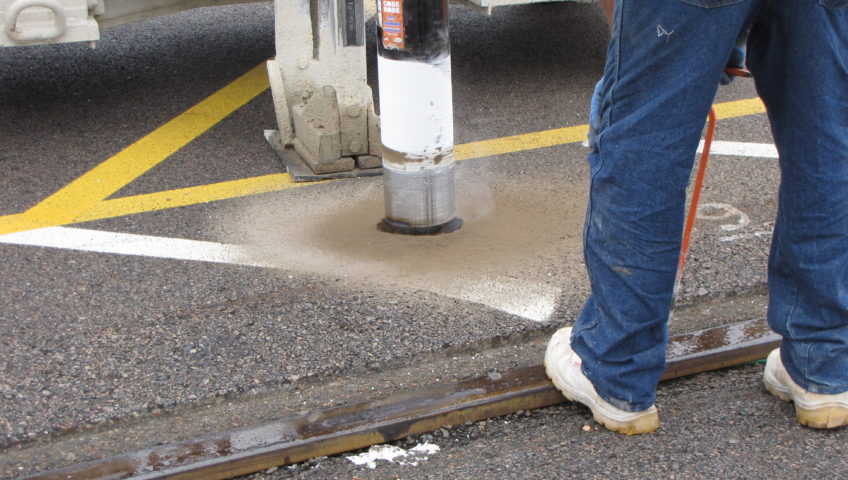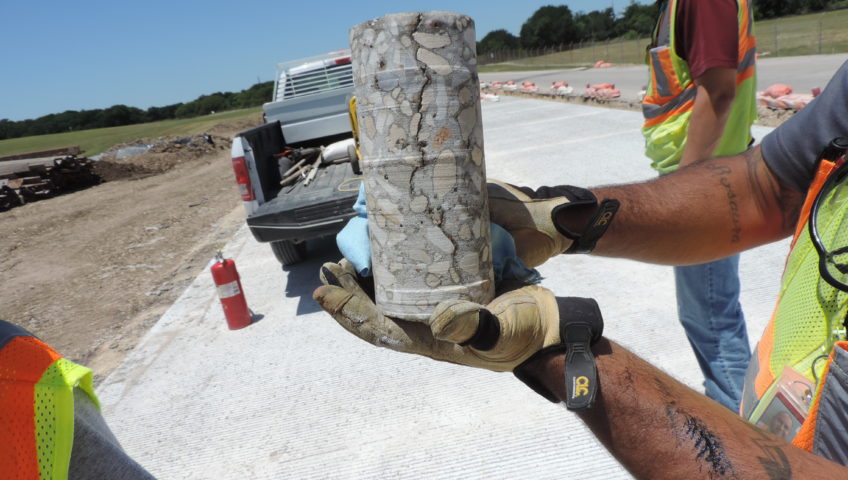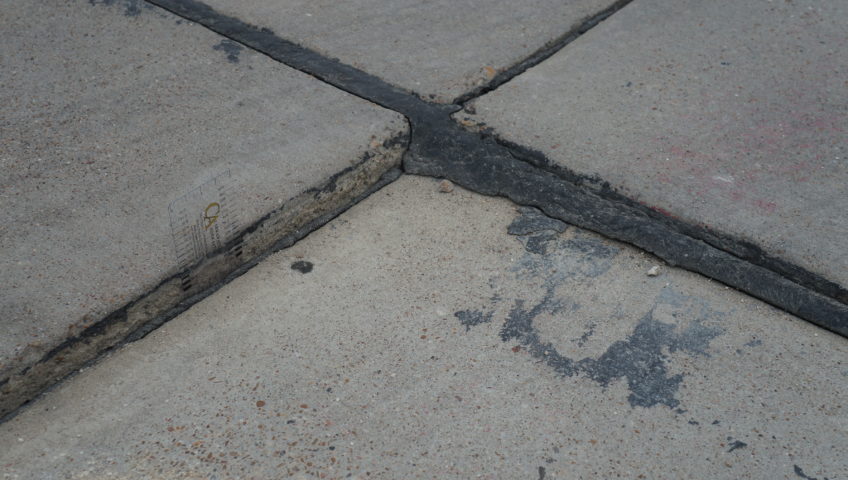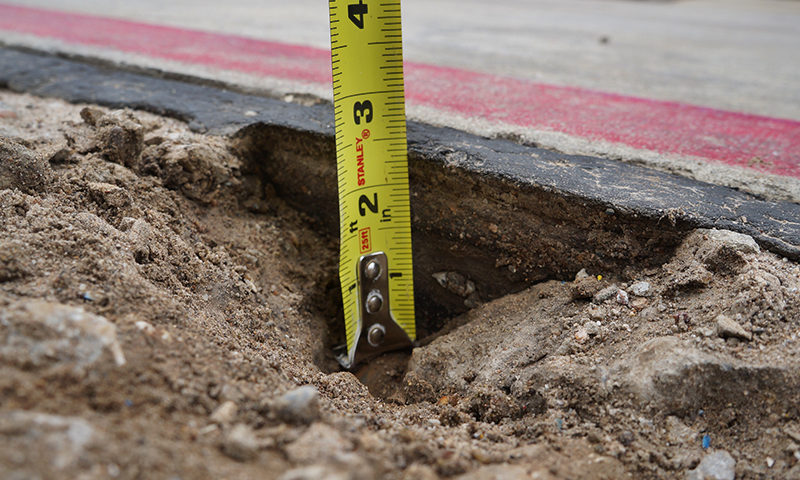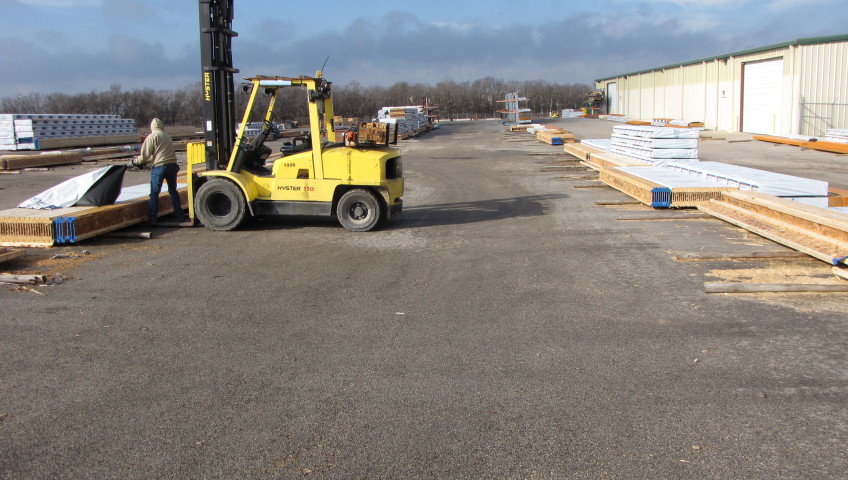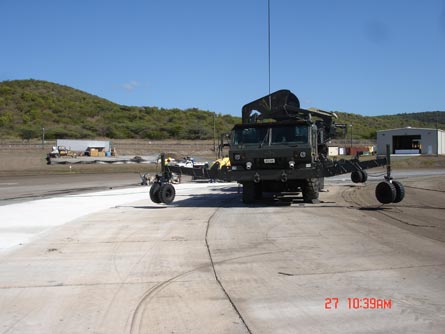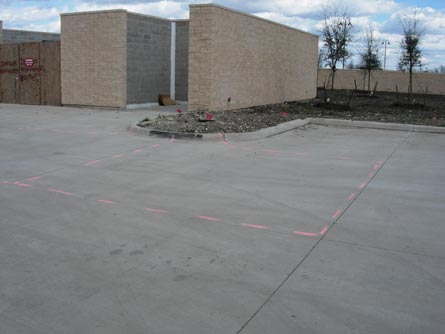Carrasquillo Associates investigated pavement distress in a shipping container terminal in Jacksonville, Florida. The pavement consisted of a 7-to-12-inch thick asphalt pavement over an 8-inch thick base consisting of a mixture of limestone, hydrated fluidized bed ash, and fly ash from a local coal combustion electric plant. Approximately one year after completion of the project, the terminal operator noticed certain areas of the asphalt pavement adjacent to concrete drains and concrete crane turning pads exhibiting up to 4.5 inches of heave. CA’s investigation included, but was not limited to, reviewing construction documents such as quality control test reports of the base material, extracting cores of the base material from areas of distress and non-distress for petrographic examination and chemical exposure testing to determine if the base material was exhibiting any residual expansion after installation. CA’s investigation determined that the presence of expansive compounds and poor quality control during mixing and hydration of the base material led to the delayed expansion of the pavement when exposed to moisture penetrating the joints between the asphalt and concrete pavement sections.
